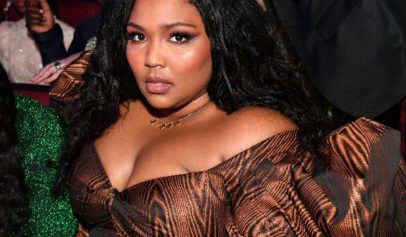
Jay-Z could have been speaking on the uptick in sexual assault allegations coming from Hollywood.
(Shareif Ziyadat/FilmMagic)
Jay-Z’s inspirational message to a 9-year-old concert-goer was meant as an encouragement. But the discussion soon zeroed in on whether the MC was right about America being more sexist than racist.
“At this very moment America is way more sexist than they are racist,” he said at a Cleveland show for his “4:44 Tour” Sunday, Nov. 19. “But you young lady, you got the potential to be the next president of the United States.”
JAY-Z’s spontaneous conversation with a 9 year old girl:
“At this very moment America is way more sexist than they are racist, but you young lady, you got the potential to be the next president of the United States, you believe that.” ❤
📽: @naptural_mae pic.twitter.com/YxLUWdCNSV
— JAY-Z Daily (@JAY_Z_Daily) November 20, 2017
Yolande Tomlinson, co-founder and director of Education and Applied Intersectionality at the Organization for Human Rights and Democracy, said JAY-Z’s statement may have stemmed from his having daughters Blue Ivy and Rumi Carter.
“I think what Jay-Z is trying to articulate is his consciousness and [his] more current awareness of the prevalence of sexism,” Tomlinson said, noting it’s important for him to speak on the subject. “Because he has daughters and I’m sure he sees the way his wife [Beyoncé] has suffered.”
While some praised Jay’s message…
This is why we call you the GOAT best post of the day!!
— judy williams (@Msreddfoxxx) November 20, 2017
That’s amazing
— JLuxury81 (@JLuxury81) November 20, 2017
Great words from a great man! That’s beautiful that you said this, with everything that’s going on in this world. Love the inspiration @JAY_Z_Daily
— Stephanie (@Stepz36) November 21, 2017
More News About Jay-Z
Absent Jay Z Inducted to Songwriters Hall by Obama via Video
Beyoncé and Jay Z Reportedly Worried Blue Ivy Would ‘Feel Left Out’ When Twins Were Born
Jay Z Comes Clean On New Album ‘4:44’ About How He Almost Blew It with Beyoncé
Many fiercely disagreed with the idea that sexism is more prevalent in the U.S. than racism.
Sorry Jay Z racism still exist in the land of apple pie and lynchings don’t be fooled by what is going on in Hollyweird now black ppl still catch hell.
— Dwight A.Love (@trojans444_love) November 21, 2017
more sexist than racist, eh? pic.twitter.com/UBiOLl7Kx2
— JustineHuxtable (@JustineHuxtable) November 21, 2017
First, that is a lie and delusional for him to say such….Sexist may not get you a job…Racism gets you unjustly murdered
— TRAPPERJOHNMD (@RoemelloScuggs) November 20, 2017
In light of the sexual assault scandal taking over Hollywood and media as of late, Jay’s comments make sense.
Over the weekend, Russell Simmons was accused of forcing a woman to perform a sex act on him and on Monday, Nov. 20, CBS and PBS anchor Charlie Rose was accused of sexual harassment.
Tomlinson said Jay’s statement was also likely influenced by his experience in the music business.
“It’s more of a statement about the industry and the field that he’s in, more than what’s higher or lower [on the spectrum of oppression],” Tomlinson said. “I don’t think it benefits us to talk about what’s higher or what’s lower. … I wouldn’t say one is more than the other but that they’re both mutually reinforcing.”


